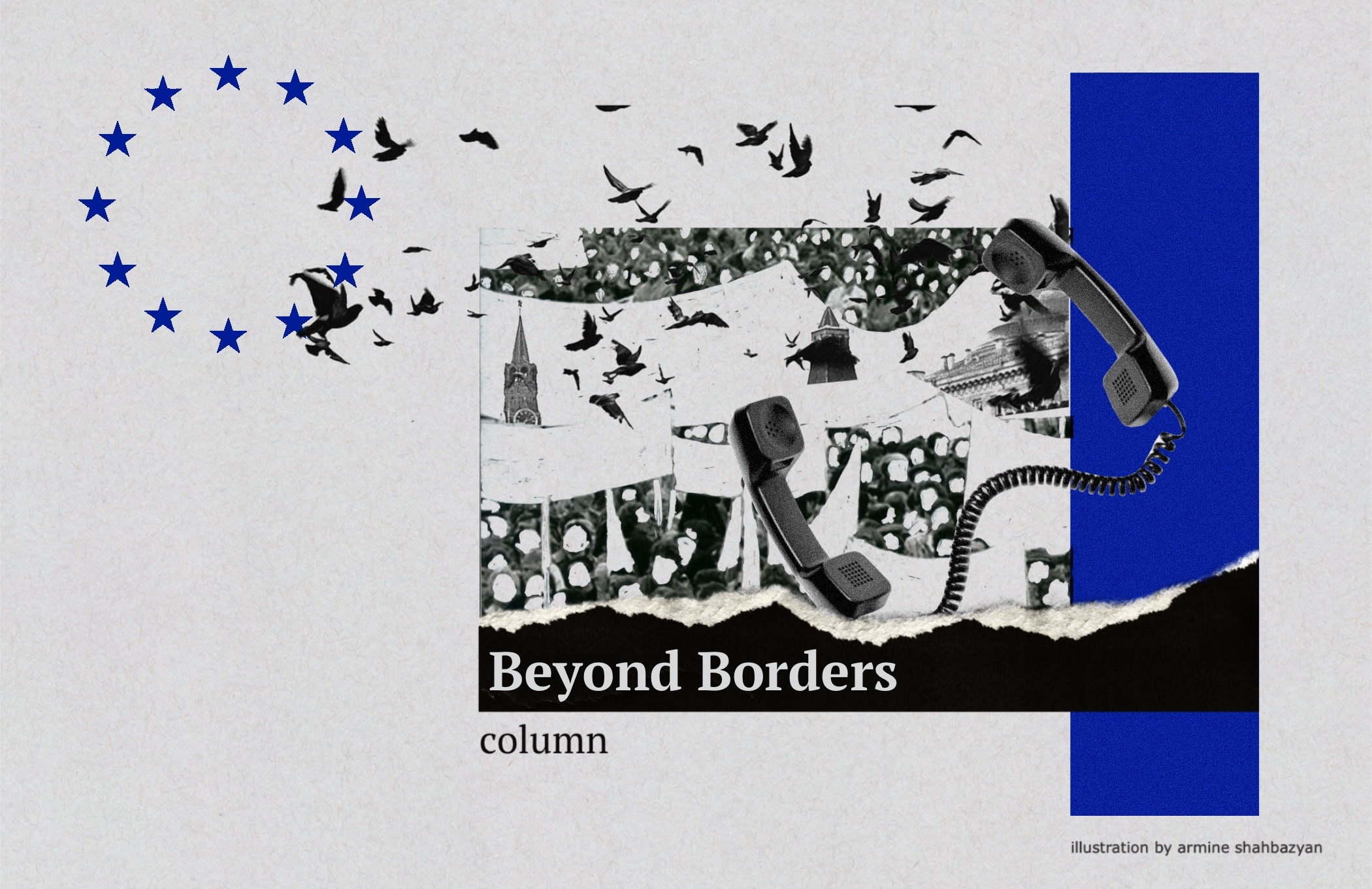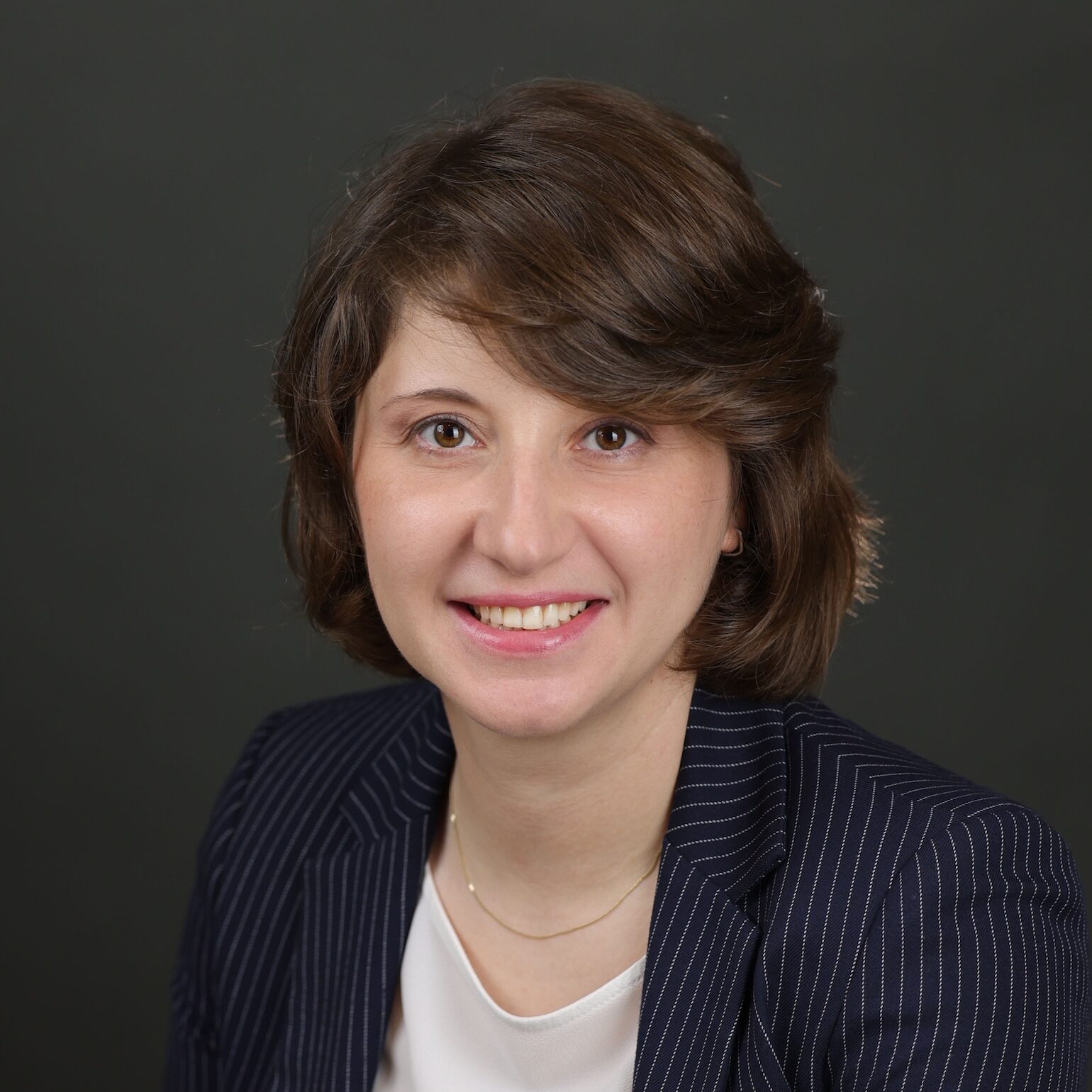[Beyond Borders]
This column explores the key issues shaping life in the South Caucasus, focusing on how the divergent paths of Georgia, Armenia and Azerbaijan reflect the region’s complex histories, economic developments, and political shifts. While new generations in these countries grow more isolated from one another due to language barriers and conflicting national trajectories, the same is true for local policymakers, who are often more familiar with distant capitals than their immediate neighbors. Each nation seeks its own path, sometimes in conflict with others, while international actors often treat the region as a whole, reluctant to craft policies specific to individual states. Drawing on personal experience with the region’s revolutions, conflicts and transformations, Olesya brings you Beyond Borders—a column exploring how decisions made in one corner of the South Caucasus impact all who live there.

Listen to the article.
All spring, Moscow was trying to patch up its fraying ties in the South Caucasus. Envoys shuttled to Baku, and just last week Foreign Minister Sergey Lavrov arrived in Yerevan. Yet the reset never took off. Armenia and Azerbaijan may be digging in, but the real obstacle sits in Moscow—still bogged down in its war with Ukraine and lacking the leverage to pull its neighbors back into orbit.
Lavrov’s visit to Armenia walked a fine line, and more than once, it stumbled into awkwardness. It wasn’t just the street protests by ideologically driven Armenian politicians that made things tense. The real strain came from Lavrov’s own bluntness. Whether speaking to students or standing beside his Armenian counterpart at a press conference, he didn’t hold back—criticizing Yerevan for drifting from the Collective Security Treaty Organization (CSTO) and for strengthening ties with the European Union. At times it felt like Armenia might have to remind him: you may feel at home, but don’t forget, you’re still just a guest.
Lavrov said he came to Yerevan to clear the air and dispel any “suspicions, misunderstandings, or miscommunications.” His approach, however, felt anything but conciliatory. He first asked Armenia to own up to a list of supposed missteps. The familiar scolding followed: stop voting against Russia at the UN—this time delivered with a folder of Kremlin talking points on Ukraine. Then he reopened an old wound, insisting that Moscow had done everything to save Nagorno-Karabakh and that Armenia itself doomed the enclave by recognizing it as part of Azerbaijan at a European summit. He even took a swipe at Prime Minister Nikol Pashinyan’s notion of a “historic Armenia,” warning—again using Ukraine as his cautionary tale—that ignoring one’s past can end badly. Minutes earlier, he had brushed off a reporter’s suggestion that his remarks predicted an “Ukrainianization” of Armenia.
In the end, the visit passed without open rupture, mainly because neither side could afford one. For Yerevan, it was about preserving the pageantry of its ties with Moscow, even as global power dynamics, sparked by the American president’s outreach to Russia, began to reshape the regional landscape. For Moscow, it was another move in a fading strategy of influence: coaxing estranged neighbors back into the fold. And though the encounter had its uneasy moments, Lavrov and his hosts managed to get through it without visible fallout.
The Russian Story With Baku
A similar choreography played out in neighboring Azerbaijan. In recent weeks two prominent Russian figures visited Baku: Valentina Matviyenko, the formidable head of Russia’s Federation Council, followed later by Patriarch Kirill, leader of Russia’s Orthodox Church. Neither came to admire the Caspian’s gusty spring breezes. The visits brimmed with protocol and ornate pleasantries. Kirill presented a ceremonial award to Azerbaijan’s First Lady, a church honor once common but now reserved for women in power. Both envoys carried personal greetings from Putin, along with invitations for President Ilham Aliyev to visit Moscow.
But behind the choreographed smiles a complex drama unfolds. Since Russian forces shot down a civilian Azerbaijani plane last December, Baku has demanded full accountability. Putin himself has called Aliyev twice to offer condolences. Yet, the formal international investigation hasn’t finished yet. Leaks to the Russian press have sometimes pointed the finger at Azerbaijani pilots, shifting blame away from Russian air controllers or the military.
This spring’s visits aimed to draw a curtain over that painful incident and reaffirm strategic ties—especially after Russia agreed to withdraw its troops from Nagorno-Karabakh, allowing Baku to claim full victory in its 2020 military campaign. But for Aliyev the downed plane is no longer just a matter of protocol, it seems to have become deeply personal. Rather than simply sending emissaries, Moscow might have learned from Iran’s slow reckoning after the 2023 attack on Azerbaijan’s embassy in Tehran—a case Aliyev pursued relentlessly until authorities recently executed the perpetrator in the presence of Azerbaijani observers. As far as the president is concerned, the airplane’s unresolved grievance isn’t going anywhere.
“You Can’t Force Love”
Armenia and Azerbaijan are no exceptions. Nearly all of Russia’s immediate neighbors have drifted, to varying degrees, out of its orbit. Some still send troops to the May 9 Victory Day parade but refuse to align themselves with Russia’s campaign in Ukraine. None have fully adopted Western sanctions, but many quietly build stronger partnerships with Europe. This kind of regional dissonance hasn’t been seen since the immediate aftermath of the Soviet collapse.
This unsettled reality worries Moscow, especially as the war in Ukraine drags into its fourth year. What once looked like a one-off break from tradition now appears as a clear drift away from Russia’s orbit. Central Asian leaders visit European capitals more frequently and just last month hosted the first summit with EU leadership on their own soil. Against this backdrop Armenia’s flirtations with the West and Azerbaijan’s growing confidence fit into a continuing trend. As Lavrov put it during one of his recent appearances in Yerevan, quoting a Russian proverb: “You can’t force love.”
Yet this drift won’t reverse itself. If Moscow wants to keep its neighbors close, it must offer more than vague appeals to shared history or outdated power structures. Over the past two decades Russia succeeded in institutionalizing ties through new military and trade alliances. But even before the war in Ukraine many partners admitted that these ties no longer offered much promise for development. Despite all its bluster, Russia has little to offer by way of practical models—whether for reform, modernization, or even simple economic aid—all of which the EU offers.
Moscow seems left to rely on other appeals. In Belarus and Kazakhstan, it has intervened to prevent leadership changes—a significant card, especially to troubled or autocrats in neighboring states who might someday need similar emergency help. As for diplomacy, Moscow’s mediation attempts between Armenia and Azerbaijan have often backfired, fueling grievances toward Russia across the region. Notably, Lavrov’s visit to Armenia brought no fresh peace proposals. Moscow might at least have pledged to help normalize Armenia-Turkey relations—which symbolically began after the 2020 war in Moscow—a move that could have boosted Russia’s chances of reentering active negotiations. But no such move came.
And so, Moscow finds itself increasingly sidelined. Despite the flurry of visits Aliyev still skipped the May 9 Victory Day Parade – an event dear to Putin – and only days later Baku went further, becoming the first South Caucasus capital to welcome Ukraine’s foreign minister since the Russian invasion. Two days after Lavrov left Yerevan, Armenia announced that it will host next spring’s European Political Community summit, a gathering of leaders from across Europe. Lavrov had pressed the Armenians to cancel. “I hope that is clear to everyone and will be respected,” he warned. It wasn’t, and it won’t be. Unless Moscow offers its neighbors something real, not just memories and medals.


